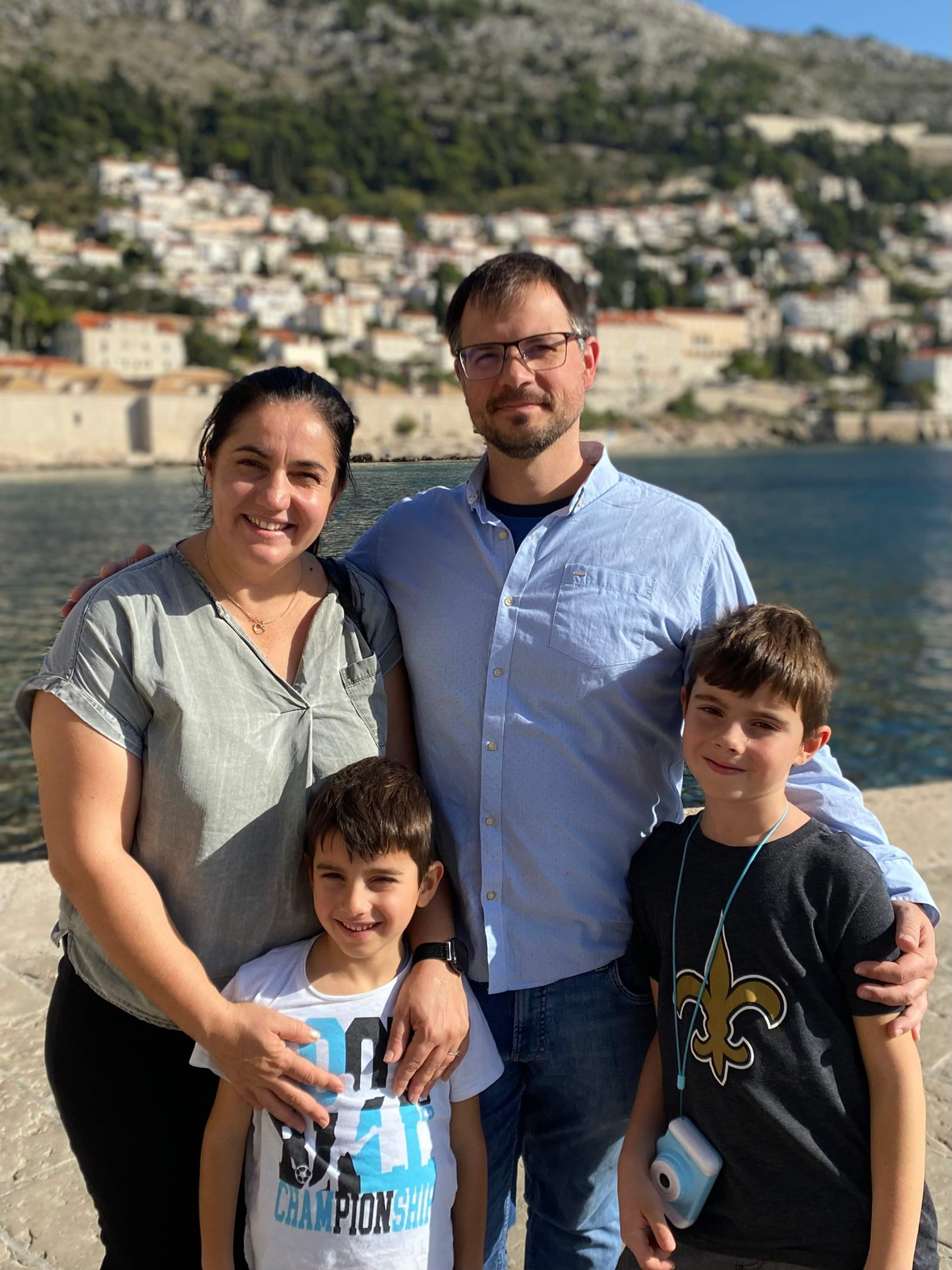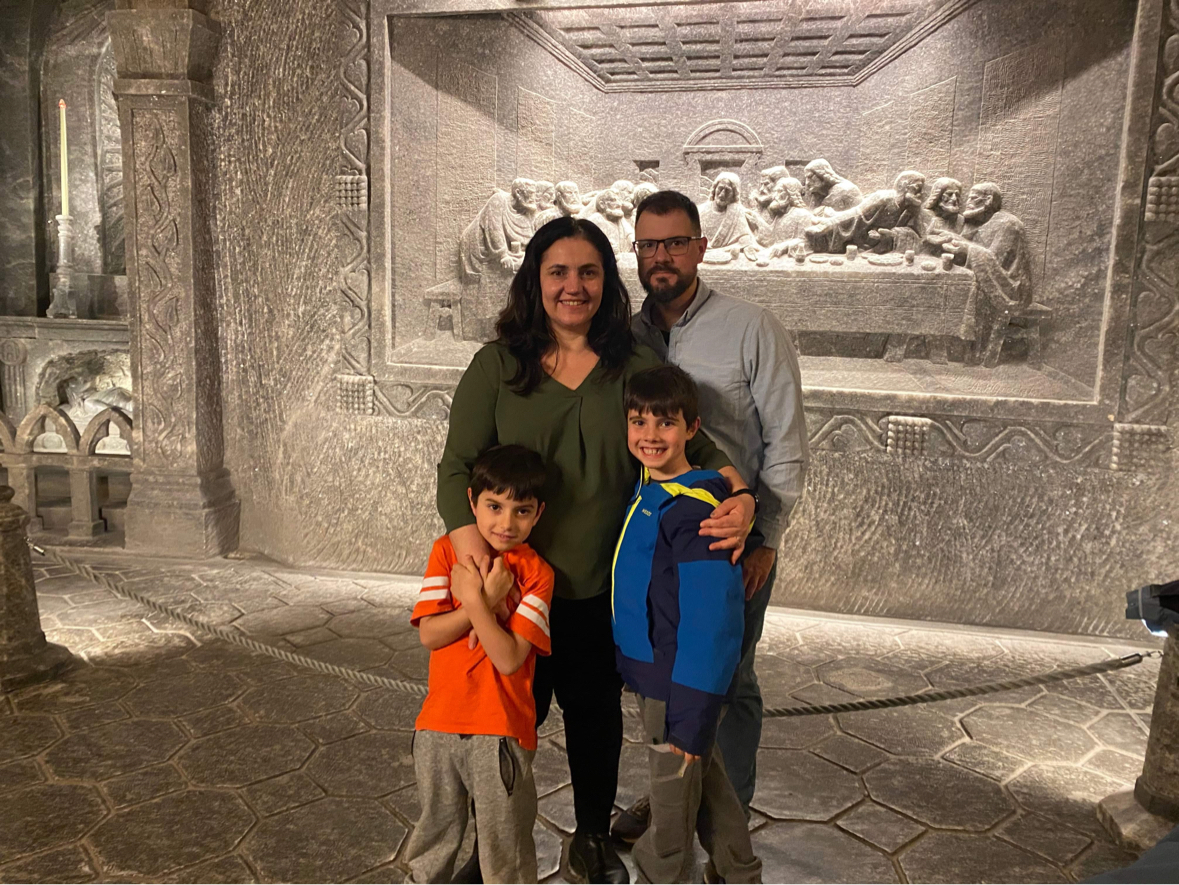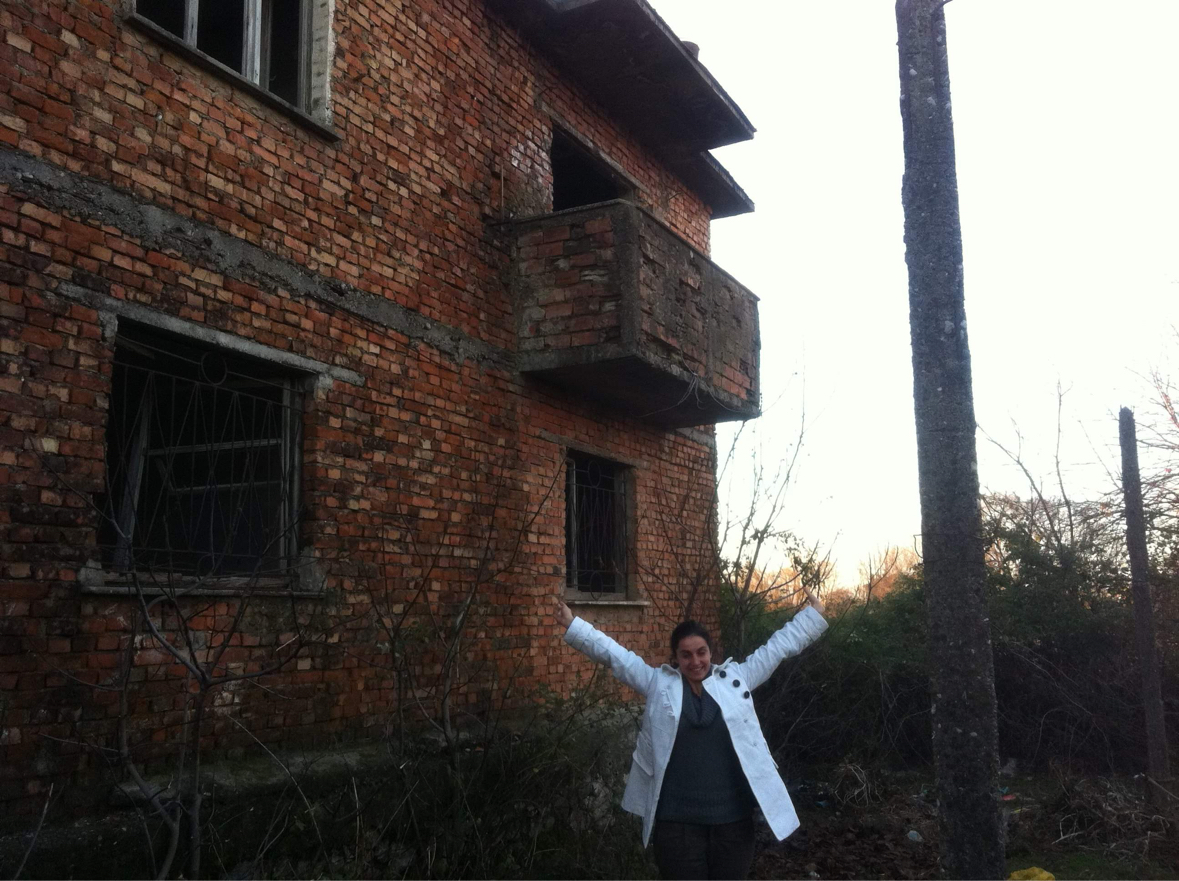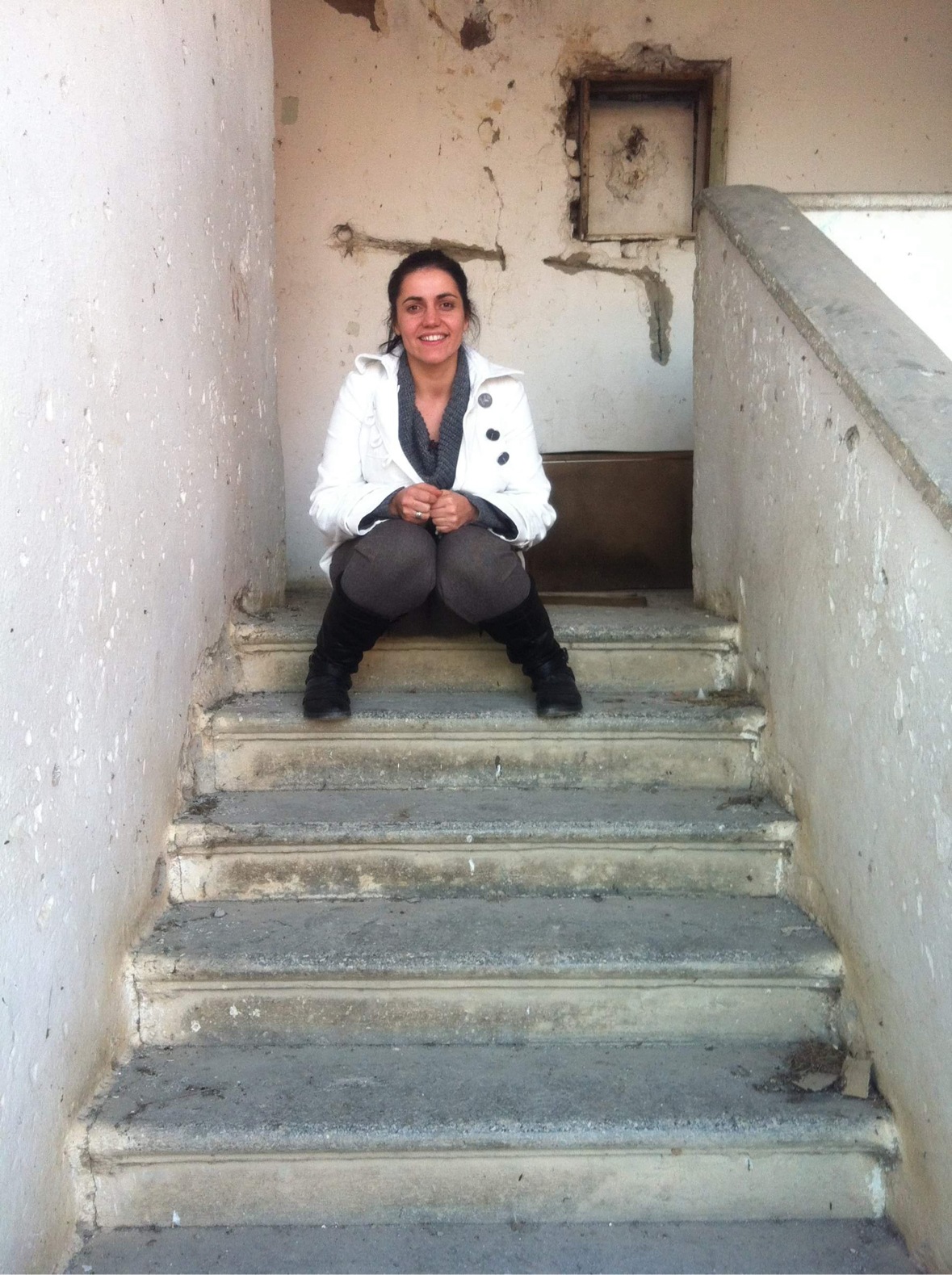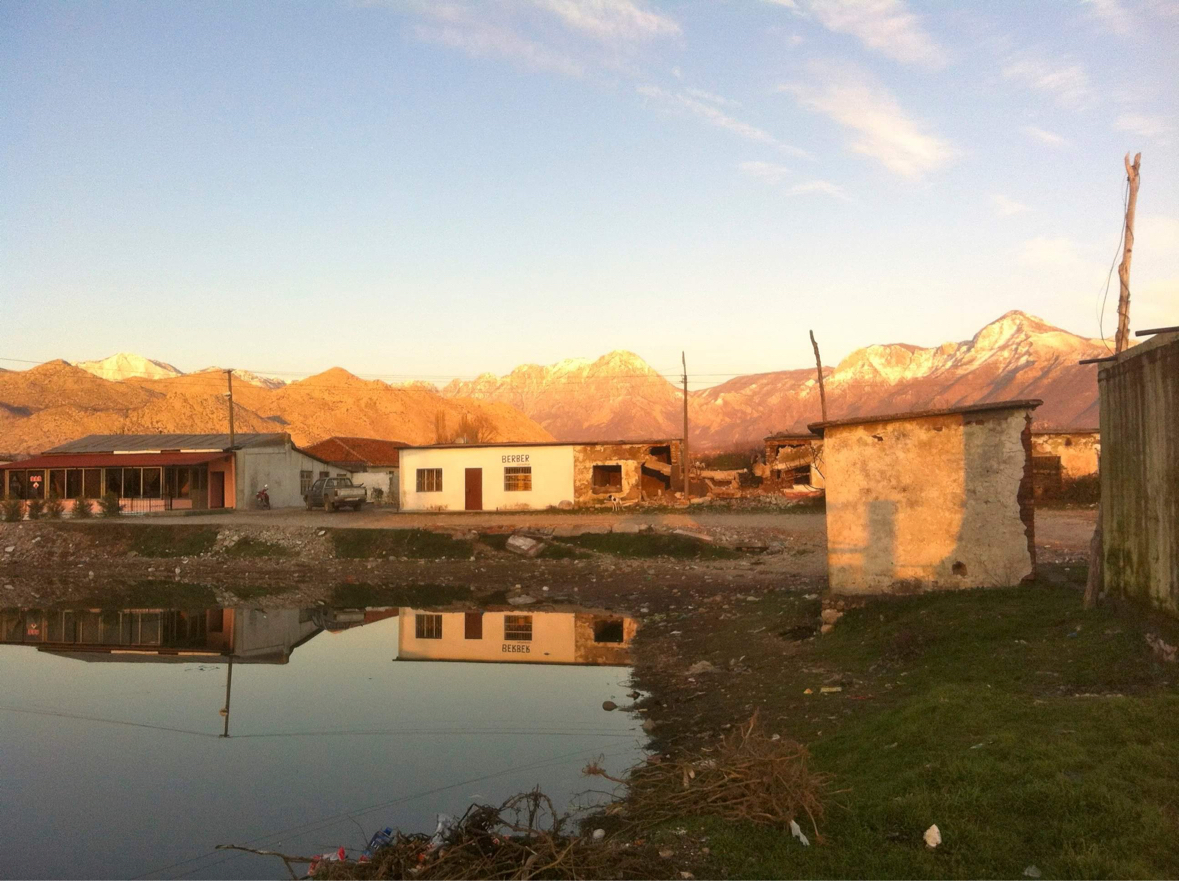As a child in Albania, Pastor Cezi Glendenning would write letters to God. The little girl would pen her questions and place the folded papers on her balcony, believing God would take them.
“Once we had a storm,” Cezi remembers, laughing. “The storm took a ladder off of our balcony, and I thought that God took it!”
The heartfelt correspondence revealed what little Cezi really craved—a relationship with God. “If he was real,” Cezi remembers wondering, “how can I reach him?”
Raised under communist rule by ardent anti-communists (her father was a political prisoner and she was born under her parents’ internment in Northern Albania), Cezi learned early on at home to seek truth, ask questions, and think for herself. When Communism fell, Cezi had a chance to explore her questions about God. Her mother and father came from different faith backgrounds, and Cezi found herself following her father to his house of worship.
“It was a chance to get to know God,” she recalls. “I was learning all of the prayers, reading books…I just fell in love with God.”
Cezi converted to her father’s religion. She began the process of studying at a religious school when suddenly, unexpectedly—he died. Cezi was utterly devastated. Her father’s death threw her into a tailspin.
“His death really was an identity crisis for me,” she says. She went to her faith leaders, seeking answers amid her family’s tragedy, but she was chastised. “They said, ‘Don’t question God, it was written in his destiny,’” Cezi remembers. Frustrated and silenced, 13-year-old Cezi could not understand a faith that robbed people of free will and the ability to ask God questions. She walked away from her newfound religion.
After her father’s passing, Cezi faced further loss when her family moved across the country and they, like many Albanians at that time, faced economic and government instability. Cezi’s behavior declined rapidly. She began fighting at school, her mother regularly receiving calls about her conduct. At home, Cezi says, she was hard to be around. But God had a plan.
Around that same time, two classmates befriended Cezi at school. They were kind and patient with the hurting teenager. They also followed Jesus.
“I would debate them,” Cezi says, remembering her arguments against Christianity. “But their kindness and patience toward me just really impacted me.” Eventually her new friends invited Cezi to their church. She saw the opportunity as a challenge. “I’m going to go to their church and show them they are wrong,” Cezi recalls thinking. So she went. And loved it.
That winter, a Canadian English teacher arrived at Cezi’s school. He, too, loved Jesus. He asked Cezi if she would help hand out brochures for his church plant, and Cezi said yes, but explained that she did not believe in Christianity.
“Here I am,” she recalls, laughing, “helping to plant a church before I am a Christian.” She handed out hundreds of papers around her neighborhood in the cold, keeping one for herself. When Cezi returned home, her mother was lighting candles around their darkened home. Albania’s government was collapsing, acts of violence were rampant, and Cezi’s family had access to electricity for about an hour each day. In this moment of uncertainty, Cezi’s trauma caught up with her.
“I was sitting in the living room and it just hit me,” Cezi remembers. “A wave of emotions—a panic attack. I could not breathe. I just started sobbing.” She grabbed the single brochure she had brought home and read about inviting God into your heart and life. Cezi knelt. She remembers praying, “God, I don’t know if Christianity is the right path, but I’d like to start over.” She confessed her sins to God and prayed for salvation.
After she prayed, Cezi says her behavior and perspective completely changed. She spent the next year pouring over her Bible. She started leading her siblings in a Bible study around the kitchen table after homework. “I had created this little church at home with my sisters,” Cezi says. The course of her life had changed.
Cezi moved to Italy to attend university at 18, and eventually found herself living in Florence. A friend invited her to church, and Cezi set foot inside her first Church of the Nazarene. “I’d made a commitment that I would never become a member of any church, because I don’t like the divisions,” she says. “But I just felt like this was my tribe.” She joined the church, jumping into serving however she could.
During her time at university, Cezi was content to serve in a non-professional capacity. The idea of a career in ministry was not on her radar. “I was happy to be a really good layperson,” she says.
In 2007, Cezi attended Third Wave, a conference for emerging leaders in the Church of the Nazarene. There, in Johannesburg, South Africa, Cezi took part in a service project in an under-resourced area of the community. Having grown up poor herself, Cezi was intimately familiar with the weight of poverty. She found herself suddenly engulfed in sadness, knowing her efforts were a puddle-sized remedy dropped into an ocean of suffering. “In this sea there’s nothing that can make a difference,” she remembers thinking. “I was just so overwhelmed with how much pain and struggle there is in the world.”
Cezi cried out to the one who welcomed her questions. “I was like, God, what’s the point of this? It was so little, not enough,” she says. That evening, she attended a conference service with Doctor JK Warrick. He taught on Jesus’ feeding of the 5,000. “Your bread and fish will not make a big difference,” Cezi remembers Dr. Warrick sharing. “But if you give it to Jesus…It will be enough, and there will be leftover.”
Jesus’ words brought Cezi confidence and encouragement. “I said to God, ‘Ok let’s do this,” she says. “I felt I had some crumbles and half a fish.” She told God, “This is all I’ve got, I give this to you.” Cezi spent her next years helping with the region’s youth, missions, and discipleship ministries. In 2008, she moved to Germany and began studying theology at European Nazarene College (EuNC). There, she met her husband, Martin, and they launched into a life serving the Church together, first in Germany, then Hungary, then Croatia. She was ordained in 2014. In Zagreb, Croatia, Cezi began pastoring an international church, helping baptize and send out dozens of new believers. These new Christians seldom remain, rather, they often pass through the little Nazarene community on their way to other countries—taking their own breadcrumbs to be multiplied by Jesus in new places.
Now, Cezi has a new role; she is the newly appointed Field Strategy Coordinator (FSC) for the Central Europe Field, the field she was born and raised on. She is singularly passionate about and equipped to serve this area of the globe, having been raised at the crossroads of multiple faiths. She brings her unique experience to her role as FSC, as well as to her course on world religions for EuNC.
“For me it has always been important not to put people in a box,” she says about those who are pursuing God through other faiths but do not yet know Jesus. “I see that they are on a journey in which God is pursuing them. We need to recognize that where there are people, there is God’s grace. That becomes our starting point of relationship with people.”
Cezi adds that Christians should learn to get comfortable being uncomfortable around other religions, because “Jesus said to love your neighbor as yourself,” she says, “But if you do not know what is important to your neighbor, how can you love them well?” She is thankful for God’s pursuit of her own heart, and excited to serve as he does the same for those on the Central Europe Field.
“I’m always amazed,” she says, “how every time I gave up on God, God found another way to reach me.”
– written by Sarah Norris
the balcony where Cezi used to write letters to God
Cezi’s home town
